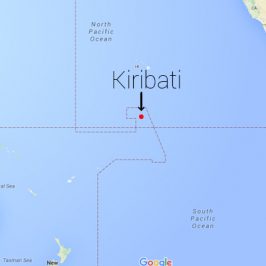When one talks about survival as a concept to the general public … at least the many I have spoken to … the immediate image that jumps to mind is the wilderness. “Of course, it is possible to get into a problem when in the jungle or the mountain or wherever,” I hear them say. Seldom, if ever, do they realise that a survival situation can occur even in urban areas, in cities and towns, where we live and work, every day, every week, throughout the year.
But most of us are so cocooned from the possibility of self-reliance that the thought of self sustenance does not enter our consciousness.
There are the stores to pick up stuff from, gas stations for fuel, the Govt supplies electricity and water (at least they are supposed to!), there is a place to sleep, etc, etc, etc. Consequently almost no one is prepared for a WHAT-IF scenario.
There are natural disasters like earthquakes and floods, landslides and avalanches. Flash floods can take away entire stretches of roads. You might find yourself in the middle of the city, but one that resembles a concrete jungle turned upside down. Houses toppled, roads vanished, the infrastructure might have disappeared completely. Situations where survival skills become essential.
You might be working in your office in a high rise building when an earthquake hits. The building is evacuated, you rush out just in time to see the structure collapsing. Cracks appear on the roads. You call home and hear the news that buildings have collapsed there too. Suddenly, in your tailored suit you find yourself facing a survival situation ... in the middle of the city. Be prepared with the knowledge of how to face it and deal with it.
India is also the unfortunate victim of terrorist attacks. War clouds loom large every so often. In case of war, in affected towns, cities and villages, evacuation takes place. And more often than not, people face a survival situation since the evacuers have larger priorities like defending the borders against aggression and the comfort of the displaced persons may not be on top of their agenda. In such situations too, if you know about the basics of survival, your life can become a lot easier.
If you are prepared for such eventualities, you will have a better chance of facing the calamity.
Unfortunately natural disasters and calamities are quite frequent around the country and every other day we hear or read about some unfortunate incident somewhere or the other. More often than not the news covers the fatalities, but not so much those who have managed to escape death but are now stranded, left to fend for themselves ... or worse, waiting for rescue to take place. It is for those few hours when the survivors have to fend for themselves that survival skills come in handy.
The essential rules of survival are the same in urban situations, as they are for the wilderness with slight modifications due to the environment and terrain. First and foremost you will have to deal with the mental trauma of finding yourself in a situation that is different from what you are used to. Assess your situation and prepare to survive. Remember the acronym STOP. Sit down. Think. Observe your surroundings and environment. Make a Plan.
And like in the wilderness, be prepared for at least 72 hours - 3 days - of survival and self-reliance.
But your preparation needs to start long before disaster strikes. There is no point in learning to swim when the boat is about to sink. Noah did not build the arc when it started to rain. Do not pay heed to anyone who tells you that you are wasting your time and being a fatalist. If and when disaster does strikes, you are the one who is going to be ready to face it, not them. And the preparedness needs to be for every member of the family, not just the Alpha Male.
In most cases you will not have to bug out of the house. In Grade I disasters, most often your home itself becomes your bug-in location. Therefore it needs to be stocked up, because the shelves in the market will become empty pretty soon and essential services might entirely disappear.
In bug-in cases, the situation you find yourself in may not require leaving your house. There might have been a major earthquake that has made life difficult. The electricity might be out, the water in the taps may have dried out. For such cases, always stock your house with emergency stuff. Keep enough dry rations for the entire family to last three or four days. Store fresh drinking water. Improvise ways and means of disposing sewage and other waste. Keep enough rolls of toilet paper handy. Lighters and matchboxes will light fires, essential when you do not have access to gas, kerosene, LPG, etc. The first aid kit should contain the essential elements required to treat minor injuries. Stock torches and enough spare batteries.
You will also require shelter material - even if you find yourself in your own house. The roof might have collapsed or the window panes might have shattered. Keep blankets or sleeping bags handy for everyone.
Hygiene becomes very important, probably more so in urban survival situations than in the wilderness. The combined pollutants of an entire city is what you will need to deal with in urban situations. Pure drinking water might become very difficult to obtain. Make sure you have ways and means of purifying whatever water you can find. Chances are it will be contaminated with city sewage, dead humans and animals, chemicals, asbestos, and the million other items that are a part of our daily existence in cities. Stuff that is dangerous if ingested.
In case you need to bug-out, have a plan in place that everyone in the family knows about.
Always keep a Grab Bag handy, next to the main door of your house. In a sudden situation, all you have to do is to grab the Grab Bag that contains all the essentials for survival. The Grab Bag contains items similar to the ones in your Survival Kit. And keep a separate Grab Bag for EACH MEMBER of the family. You might get separated and will require your own individual kit.
Another problem many of us are faced with quite frequently, yet do not realise that it is a kind of survival situation, is when there is a downpour. The entire city gets paralysed, the roads turn into raging rivers, and you find yourself stranded inside your car for hours on end, going nowhere. What should have been a short drive back home, becomes an ordeal in frustration. You cannot leave your car in the middle of the road to walk back home, that is not an option. So you stay in the car, hoping things will improve. You switch on the air conditioning and listen to some music. In between you call home, then call some friends and share each others' stories. Soon enough, you run out of people to call ... or the batteries in the phone runs out. Now you realise the importance of a car charger!
You cannot keep the car running for long since you forgot to top up the tank on your way to work in the morning. Have a five liter can filled with petrol/diesel all the time in the trunk for emergencies like these!
Slowly you become irritated and start cursing everyone - the system, the Government, the Municipal Corporation, your boss, your job, even God himself.
It is for these times that your knowledge and preparedness for urban survival comes in handy.
You reach out and take out the Grab Bag from the boot. This is a second one, the first is at home. This is your Get Home Bag and in it you have some chocolates, some dry fruits, a bottle of water, a torch with spare batteries, an emergency blanket, a basic first aid kit and sundry other items. Maybe even a book to pass the time and take your mind away. Look at the Get Home Bag as a younger brother of the Grab Bag. The items contained in the Get Home Bag come in handy now. And talking of being stuck in your car, or getting in a situation where you to abandon it, keep a pair of walking or trekking or hiking shoes in the boot ... just in case.
With knowledge you can help road accident victims and people caught in the cross fire of a terrorist attack, for instance. With your knowledge of first aid and trauma management, you can help people stay calm. You can even save some lives by addressing wounds like bleeding, shock and heart attack and calm people down who are suffering from panic attacks.
Urban survival and self-reliant situations are a reality and you will fare much better if you are prepared. You can prepare yourself to make survival easier for yourself and for your family. In addition, you can help others face the situation you and everyone around you find yourself in.
You can volunteer to become part of the rescue team. It is in these times that your knowledge of survival will come in handy. But always remember, you are of no use if you are injured or otherwise incapacitated yourself. You have to take care of yourself first, to be of any help to others in need. The the stuff has hit the fan, people who are supposed to be manning essential services like hospitals, and the police and law enforcement personnel become thin very quickly … they too have families to think about!
It is much more difficult to face an urban survival situation compared to a wilderness one primarily because of the sheer number of people vying for the limited resources available.
Everyone wants the same things for themselves and their families - food, water, shelter. The stores are shut and rioting breaks out to gather as much resources as possible. Law and order becomes redundant and even friends become foes. Of course, this is an extreme apocalyptic example, but things like these do happen. When Hurricane Katrina hit the United States, people were evacuated to a stadium. It took the authorities FIVE DAYS to get drinking water to the stadium. People were shooting others on the streets, just to get hold of some water!
In the wilderness you are in much more control of your environment. There is no one competing for the resources that you are looking for. It is you who have to identify and finalise your shelter location. You have to go and find your food and water. Your only competition is other predators.
Urban survival situations do happen. Everyone remembers the tragedy that struck Kedarnath a few months ago. A few years ago the entire city of Bhuj was razed to the ground. Entire villages in Bihar were swept away when the River Kosi abruptly changed its course. People of Leh woke up to a very rude and surprising phenomenon of a cloudburst ... in an area that is considered a desert. Places in the middle of the Thar desert get flooded in the slightest rain because of the bedrock of granite on which the towns are raised. River embankments regularly get eaten up by various rivers.
Yes, urban disasters are a reality and you need to be prepared to face it.










Leave a Reply
You must be logged in to post a comment.